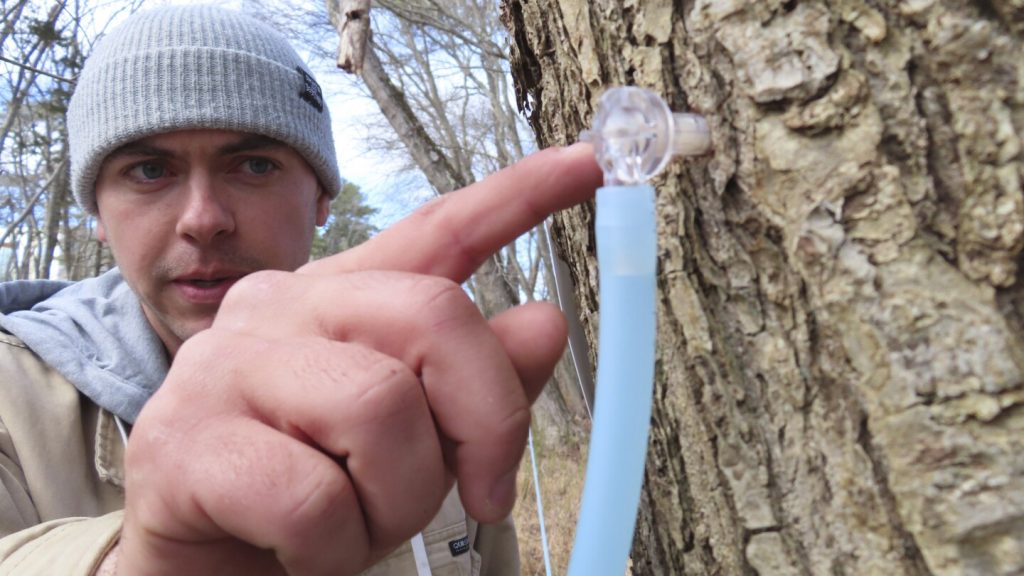Stockton University in New Jersey is working on creating a viable maple syrup industry in the southern part of the state, using red maple trees common to the area. The university has received $1 million in grants from the U.S. Department of Agriculture to support the project, known as the Stockton Maple Project. Despite red maples having lower sugar content compared to the sugar maples found in Vermont, the university is determined to make it work and has been producing syrup for four years.
Red maples are not typically sought after for syrup production due to their lower sugar content, with red maples having around 1% sugar content compared to 2% for sugar maples. However, Stockton has found a way to increase the sugar content in the sap using a high-pressure membrane, allowing for more efficient syrup production. While it usually takes 40 gallons of sap from Vermont sugar maples to make one gallon of syrup, it takes at least 60 gallons from red maples. Despite the challenges, Stockton has been successful in producing a unique dark and rich syrup with a slightly smoky taste.
Despite the historical presence of maple syrup production in New Jersey, particularly dating back to Native American populations, a large-scale industry never took hold in the southern part of the state. However, with the efforts of Stockton University through the Stockton Maple Project, the hope is to establish a flourishing maple syrup industry in the area. The university has been able to produce over 4,000 gallons of sap from 400 trees and expects to produce 55 gallons of syrup this year, an impressive feat for a region not known for its syrup production.
New Jersey produced 1,817 gallons of maple syrup in 2022, valued at $88,000, compared to Vermont’s production of nearly 6 million gallons valued at $105 million. The challenge of the warmer climate in southern New Jersey has impacted the sap flow, which requires specific temperature conditions for optimal production. Despite these challenges, Stockton has been successful in its syrup production and plans to expand its distribution through partnerships with the food industry and regional schools.
The process of producing maple syrup involves tapping the trees, collecting sap, and cooking it in an evaporator to increase the sugar content and darken the color. The syrup produced by Stockton is darker and richer than commercially sold syrup, with a distinct smoky flavor. The university is already using the syrup in its food service program, creating new flavors of salad dressings and barbecue sauces. With plans to introduce the syrup more widely, Stockton aims to showcase the quality of New Jersey maple syrup and establish itself as a key player in the maple syrup industry.
The Stockton Maple Project has brought attention to the potential for maple syrup production in New Jersey, challenging perceptions and showcasing the quality of locally produced syrup. Through innovative techniques and a dedicated team, Stockton University has shown that it is possible to create a successful syrup industry in the southern part of the state. With continued support and partnerships, the hope is that New Jersey maple syrup will become a recognized and sought-after product, putting the state on the map as a key player in the industry.


